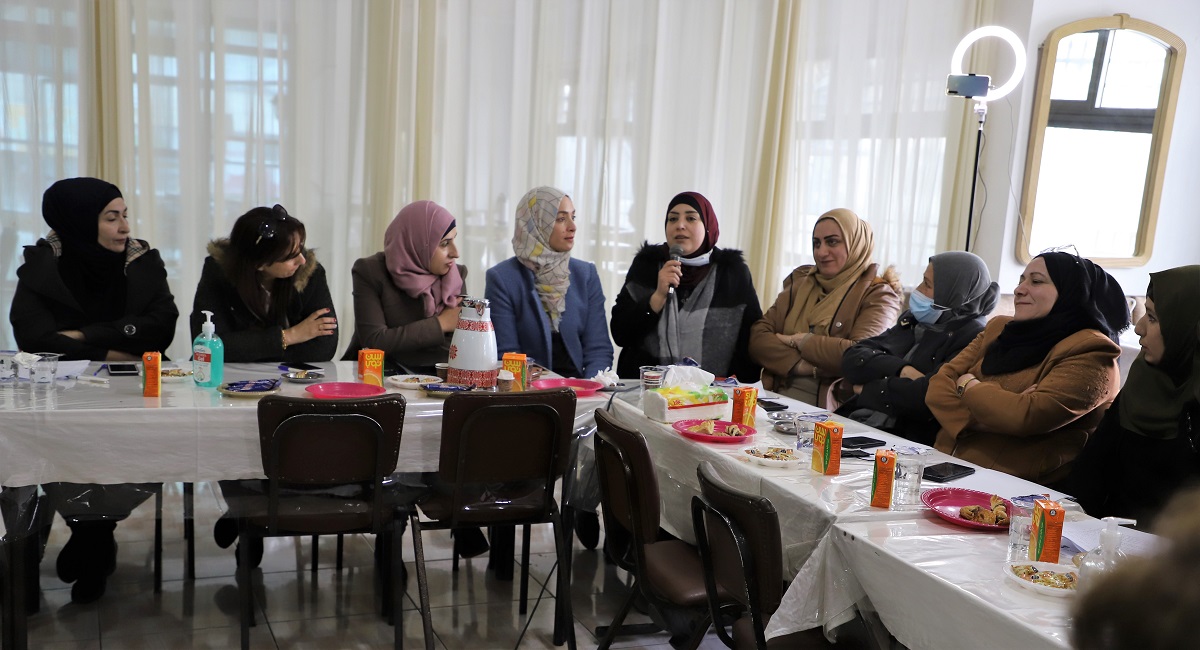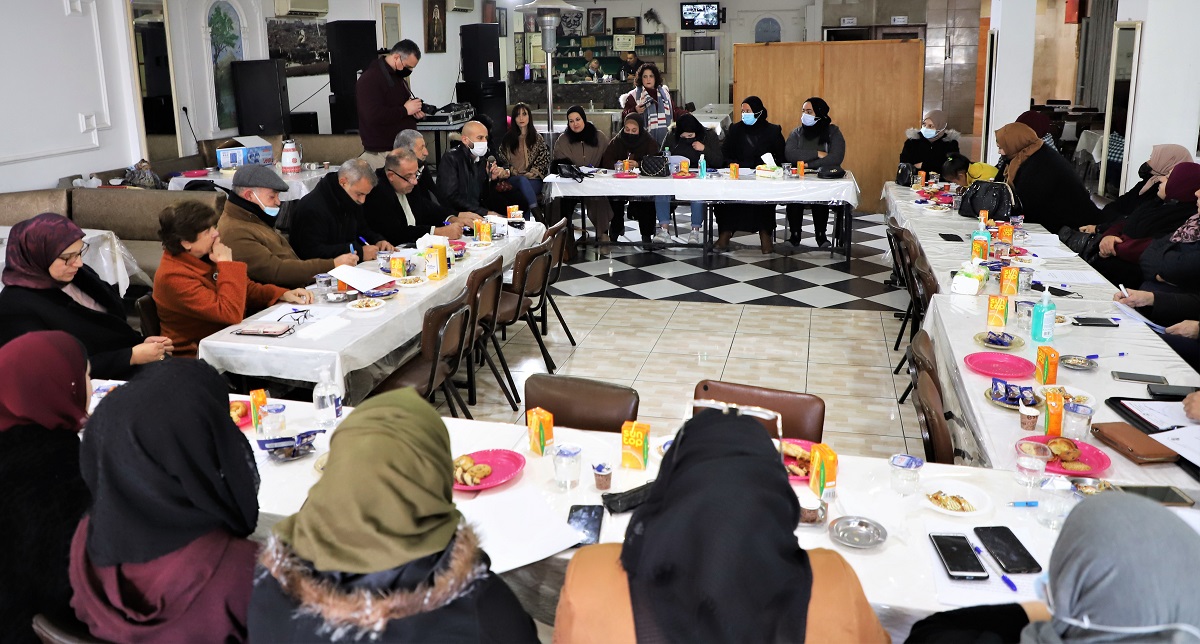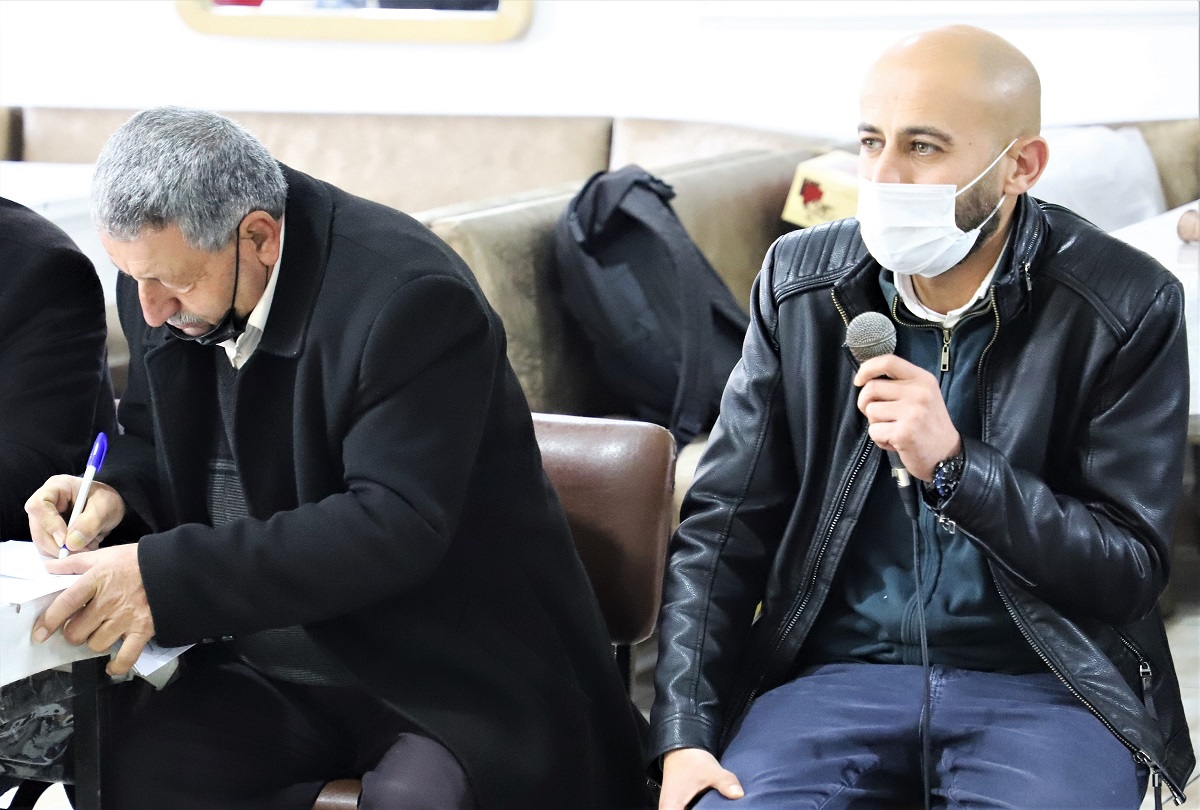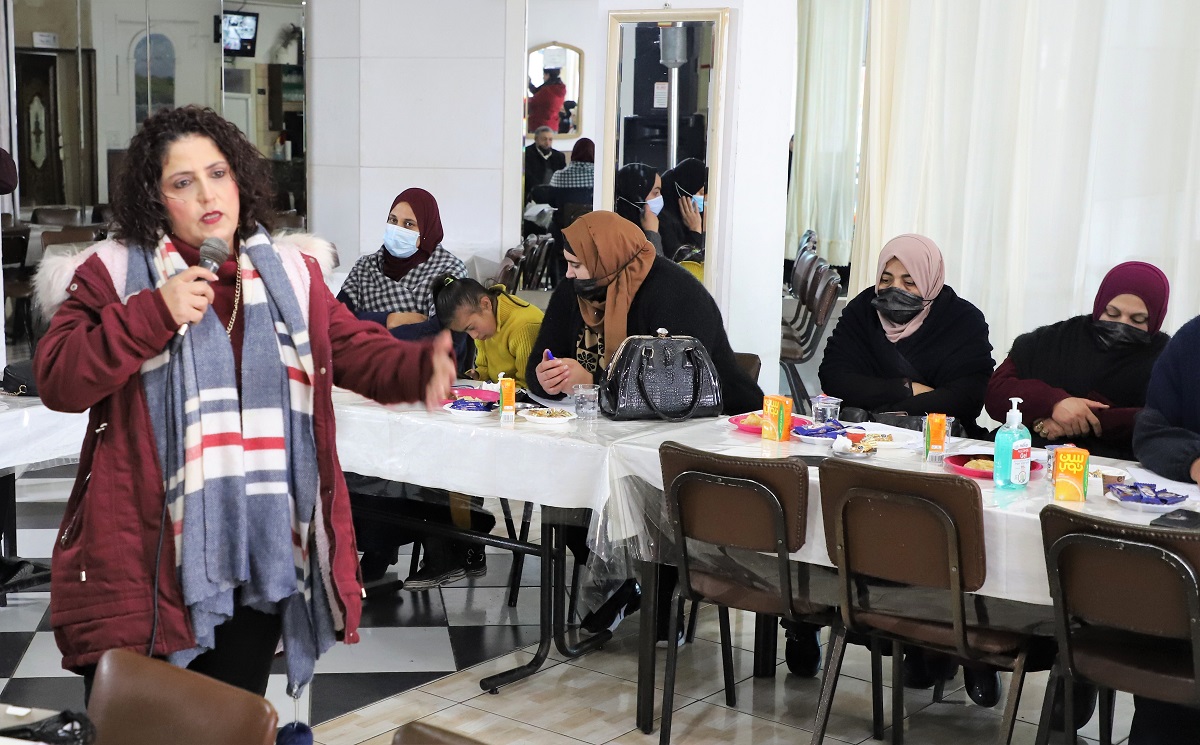|
MIFTAH and TAM hold dialogue session on 'Gaps in the Local Elections Law and women’s visibility in election campaigns'
Ramallah – MIFTAH, in partnership with Women Media and Development Center (TAM) held a meeting on February 7 in Bethlehem as part of the project “We Rise”. The meeting discussed the gaps in the Local Elections Law and the extent of women’s visibility in election campaigns, based on a factsheet prepared by MIFTAH. Its results indicated that women candidates’ photos only appeared in approximately 28% of elections lists and campaigns. The highest percentage was in the Bethlehem district, at 60%, followed by Tulkarm at 56%. Meanwhile, some election lists in certain districts scored 0.0% visibility for women, or a complete absence of women’s pictures in election campaigns. The meeting, chaired by MIFTAH field consultant Yolla Al Atrash and attended by several representatives of electoral lists and members of local institutions and women’s centers, discussed the challenges surrounding women’s participation in the political process. It stressed on the need to shed light on women’s social and political role, which is still largely associated with stereotypes and the predominant religious, social and cultural norms. This led to candidates and supporters of electoral lists absenting women’s photos and highlighting their male counterparts instead, thus allowing for traditional culture to dominate, which rejects the visibility of women and only seeks to meet the requirements of the Local Elections Law. One candidate from a Bethlehem-area list, Ghada Wahsh said, “I was surprised that the map of Palestine was on every campaign flyer in place of my photo. I called the list’s official and asked him why my picture had been replaced by the map and this was his reply: ‘It is for your own good from the social aspect; this will prevent any problems for you in the future.’ I strongly opposed this argument and said I would withdraw my candidacy if my picture is not included. I became a candidate so I could raise up the voices of women and boost their self-confidence. I want women to know their rights. I exist and I am my own person, not a nobody. So I forced their hand and made them put my picture on the list and I won in the elections.” Amal Salameh, member of the Dar Salah village council added, “Even though decision-making positions are male-dominated, I still make my opinions very clear so I can prove that women are productive and capable of change. I want to show that our presence here is not just a formality, merely to fill seats.” The participants agreed on a number of recommendations, including: safeguarding the right of citizens to choose their representatives, question them and hold them accountable since elections are a fundamental part of any democratic system and directly linked to sustainable development. This activity is part of an advocacy and national awareness campaign led by MIFTAH and TAM to demand higher and just representation for youth and women in the democratic process, given the importance of their role in building a democratic Palestinian society where all sectors enjoy freedom and human rights. This meeting is one of the events implemented by both institutions, which will be followed by several advocacy and awareness activities throughout February and until mid-March, 2022. Their objective is to achieve a higher level of participation for youth and women, not only as candidates in electoral lists, but also as independent monitors of the entire process, to ensure its adherence to standards of transparency and credibility.




http://www.miftah.org |